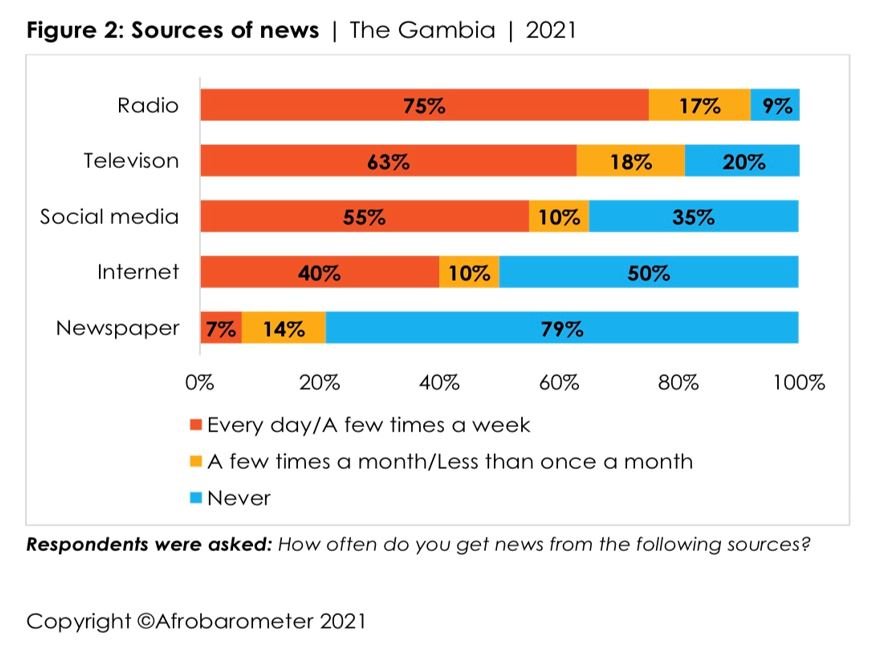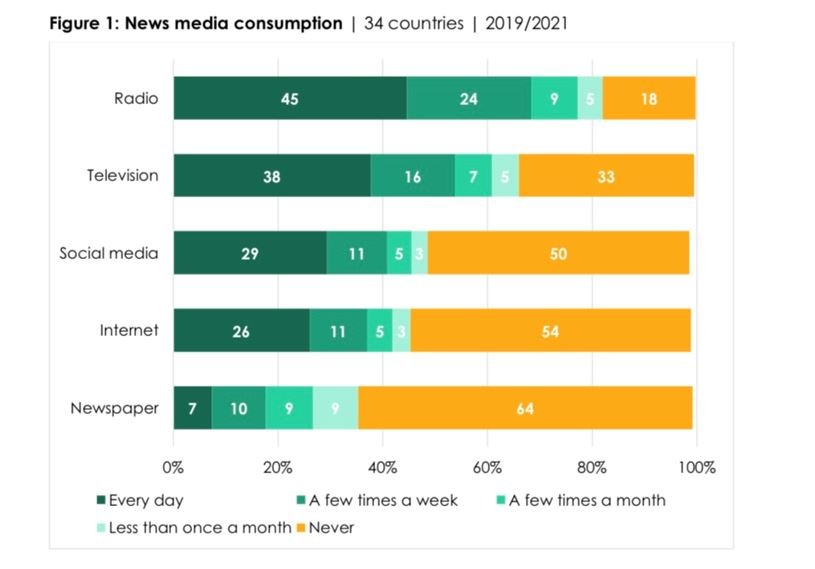By Arret Jatta
With the advent of social media, journalism has gone beyond mainstream media as the landscape become broader and information sharing has significantly evolved.
In The Gambia, social media is reshaping the journalism landscape by providing a platform for real-time news updates, citizen journalism, and direct interaction between journalists and their audience. It has also led to the rise of viral news stories and challenges traditional media outlets to adapt to the fast-paced nature of online news consumption.
According to Yellow Brick, article, The Power of Social Media in Modern Journalism, social media has revolutionized the way news is reported, shared, and consumed.
With the rise of platforms like Facebook, Twitter (now know as X), and Instagram, journalists now have unprecedented access to real-time information and a direct line of communication with their audience. This has had a profound impact on the field of journalism, transforming both the way stories are told and the role of the journalist in the modern media landscape.
News Sources for Gambians
After dictator Yahya Jammeh’s departure in 2017, the Gambia’s media landscape broadened with a proliferation of radio and TV stations. New online news platforms were also launched. Gambians consume news through a variety of platforms from traditional newspapers to online news sites and social media.
According to Afrobarometer’s 2021 survey, most Gambians often get news from the radio everyday or few days a week – making radio the most used news platform with 75% percent, followed by TV at 63%.
Social media is the third news source for Gambians with 55% of the population getting their news from various social media platforms. Newspapers got 7% making it the least used medium on the chart.

It also shows that across the 34 countries surveyed, radio remains the most used news outlet in Africa by a substantial margin. Two-thirds (68%) of respondents say they use it at least a few times a week, including 45% who tune in every day. Television comes second, with more than half (54%) of adults watching the news at least a few times a week, followed by social media (41%) and the Internet (37%). Only about one in six (18%) report regularly reading a newspaper.
While the use of radio, TV, and newspapers has been remarkably steady over the past five years, the rise of digital media has wrought significant changes in Africa’s media landscape and that of The Gambia.

Between 2014/2015 and 2019/2021, across the 31 countries included in both Afrobarometer survey rounds. The proportion of respondents who get news at least a few times a week from either social media (41%) or the Internet (37%) or both has nearly doubled, from 24% to 43%.’ In fact. regular digital media users outnumber regular newspaper readers by more than 2 to 1, although some individuals who use digital media might be reading stories published by newspaper online.
What are the advantages of social media journalism?
- Real-time news updates.
- Direct interaction between journalists and their audience.
- Facilitation of citizen journalism.
- Increased reach of news stories through sharing and virality.
- Diverse perspectives and instant feedback on news content.
What are the disadvantages of social media journalism?
Social media or digital journalism has advantages but there are disadvantages as well.
- The potential for the spread of misinformation.
- The challenge of verifying sources in a fast-paced environment.
- The risk of echo chambers and filter bubbles shaping news consumption.
- Issues related to privacy and data security.
- Prioritization of sensationalism over accuracy in news reporting.
How can journalists combat misinformation on social media?
To combat misinformation on social media, journalists can employ various strategies. They can conduct thorough fact-checking, verify sources, provide context to stories, and promote media literacy among the audience.
Additionally, journalists can collaborate with other reputable news outlets and organizations to cross-check information and ensure accuracy.
By upholding journalistic ethics and standards, journalists can play a crucial role in countering misinformation and maintaining the integrity of the media landscape.


